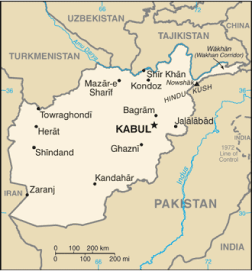 Tomorrow, Time magazine is scheduled to announce its annual “Person of the Year.”
Tomorrow, Time magazine is scheduled to announce its annual “Person of the Year.”
It’s the usual mix of personnel on the short list, some of which I don’t get (Steve Jobs? Why this year? Obama, of course etc.)
It’s not on the list, but my choice for Person/Thing of the year would be the smartphone.
Yes, the iPhone – which completely redefined this niche – is two-and-a-half years old, but – to me (yes, a techie) – today’s smartphones are so prevalent and important that they have, in many ways, stopped being phones.
They are hand-held computers.
And ever since the iPhone took it to this level, every phone that came out since has tried to one-up it (I don’t think anyone has; Droid is close).
This is the year of the outcry of the Apple App Store blocking apps, of Android really taking off and the Droid almost equaling the iPhone, of the high hopes (dashed, to a degree) for the Palm Pre etc.
This was the year when there was no going back. You don’t have a phone, you have a smartphone. If you don’t, your next phone certainly will be.
And the app store that works with your smartphone has become nearly as important as the phone itself – and the app store’s importance will only increase as all phones become somewhat equal.
That was one of the big drawbacks to the Palm Pre when it first came out – it had an app store with only a few dozen apps.
Android, with its open and familiar Java architecture, made making apps easy and appealing for many – the Android App store, one year young, now has 20,000 apps, approximately 2/3 free.
This is less than the iPhone’s 50,000 apps in its first year, but Android came second. Apple had first-mover advantage, and – to be honest – a cult-like following.
I work with many people who have only a cell phone, and virtually all of them have an iPhone. They can post to Facebook or Flickr with it, take pictures, text friends, listen to iTunes on it.
Oh – they sometimes even use it to place or take a call!
I’ve been through a lot of tech shifts (yes, I worked at a dot-com start-up during the internet boom/bubble/burst), and this smartphone shift is as significant as the migration of, well, almost everything to the web.
Location is the next frontier on these small computers, and this space is already getting cluttered.
And neat ideas/solutions are being developed.
What comes next with regard to smartphones?
Almost anything.
Which is why I consider the smartphone to be the person of the year.
Update 12/16: Time has named Fed Chief Ben Bernake as its person of the year. Yes, he was the point person (with Geithner and Obama) on keeping us out of a depression, but he has not really been seen as entirely competent (to be fair, what superman could be “competent” under these conditions?). Krugman has a funny take on Bernake’s honor.

 Tomorrow, Time magazine is scheduled to announce its annual “Person of the Year.”
Tomorrow, Time magazine is scheduled to announce its annual “Person of the Year.”

 There’s been a lot of buzz around the internet following the not-yet-materialized threat by News. Corp.’s leader Rupert Murdoch to
There’s been a lot of buzz around the internet following the not-yet-materialized threat by News. Corp.’s leader Rupert Murdoch to 
 Twenty years ago, the
Twenty years ago, the  Bottle Shock
Bottle Shock Proposal, The
Proposal, The